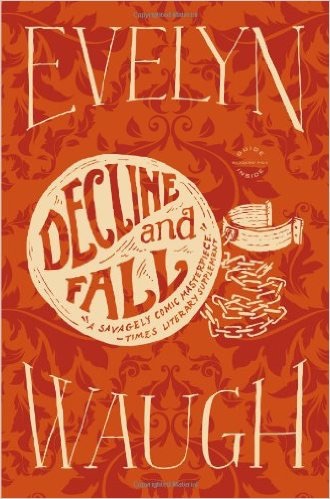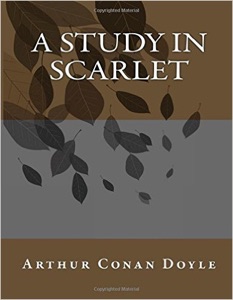Suddenly, political violence is once more an immediate concern. Trump rallies are incendiary, and Trump’s bizarre denunciations of judges on racial and religious grounds light other fires. Once we accept violence in politics, it will be incredibly hard to return to a sane and livable world.
At the same time, the internet is threatened by a wave of politically-inspired extortion. Gamergate has discovered a valuable new tactic: they can force opponents to acquiesce in their schemes by using opposition research to threaten them, their families, and their jobs. The proving ground has been Wikipedia; if it works there – and at the moment it’s working well — it will spread throughout what remains of the open, non-corporate Web. Gamergate itself was a juvenile conspiracy of trolls, but their success has now inspired large and capable right-wing operations across the globe.
Widespread extortion is a threat to civil society and to a free internet. The situation is especially dire at Wikipedia, the encyclopedia that �“anyone can edit.” Once the threat of opposition research becomes established, no responsible person will dare defy the extortionists. Responsible people – especially teachers – now edit at grave risk to their careers. Encouraging students to edit, once a widespread practice, exposes them to anti-semitism, sexual harassment, and extortion.
The “Gamaliel” Case
Gamergate and its Trumpeter allies have forced reform administrator “Gamaliel” – elected last December to the Arbitration Committee (the supreme authority for Wiki governance) on an anti-harassment platform – to accede to their ongoing assault on Wikipedia. Gamaliel works as a librarian at a Catholic university in the United States. Gamergate thought he was a thorn in their side. To silence a perceived critic, Gamergate supporters wrote to his employer, threatening to tie the school to child abuse. In the wake of these threats, Gamaliel was forced to take the extraordinary step of asking to be banned from sanctioning Gamergate violations and was then forced to resign from his elected post and abandon Wikipedia.
Last year, Gamergate launched an operation aimed at silencing five feminist Wikipedians. In an infamous decision, Wikipedia gave Gamergate everything they asked. Unsatisfied, Gamergate launched a new operation targeting Gamaliel (and me, but I was a very secondary target). Amazingly, Wikipedia fell for it again.
In an astonishing turn of events, Trump supporters brought a case against Gamaliel for publishing, as editor of a Wikipedia newsletter, an April Fool’s Day joke headline regarding Donald Trump’s small hands. Was this a blatant violation of Wikipedia’s libel policy? Of course not. Graydon Carter’s famous Spy Magazine profile called Trump “a short-fingered vulgarian” back in 1988. Marco Rubio talked about Trump’s “small hands” in a February 29 speech, which Trump discussed in embarrassing depth with the Washington Post. The New Yorker put Trump’s small hands on its cover.
(The same editors who started this mess also claimed that membership in that notoriously radical organization, the Democratic Party, was incompatible with Wikipedia’s vaunted neutrality.)
Did Wikipedia stand up for their volunteer, who was facing harassment over a Trumped-up case, and who had been silenced by threats to his livelihood? No: they admonished him and forced him to resign from the committee. After ten years and 74,912 edits to the encyclopedia, Gamaliel has been effectively removed from the project.
Opposition Research
Gamaliel has recently been the subject of at least one death threat related to Gamergate, and Gamergate boards are rife with sexual innuendo and opposition research directed at him.
Elsewhere, Gamergate is making great strides. For example, the infamous harassment of Alison Rapp has been scrubbed from Wikipedia’s history of Gamergate. Gamergate believed (incorrectly) that Rapp, a Nintendo marketing employee, had deemphasized some sexual elements in American versions of Nintendo games. A sophisticated opposition research operation pored over Rapp’s student essays, ancient Twitter discussions, and photographs. They put together allegations of sexual impropriety and ultimately convinced Nintendo to dismiss her. Her husband — a barrista at a Nintendo office — lost his job as well.
The harassers used Wikipedia talk pages to publicize rumors and allegations about Rapp when they were seeking her dismissal. The harassment having succeeded, mentioning the harassment in Wikipedia no longer serves Gamergate’s purpose and – voila! – the episode has been expunged from the encyclopedia.
What is Going On?
That a group of anonymous trolls might plan a campaign of extortion against a Wikipedia arbitrator is dismaying. That Wikipedia is willing to accept the harassment and to acquiesce in extortion is shocking, even to a writer who has a low opinion of Wikipedia.
In recent months, two Wikipedia trustees – one a popular community representative – have been forced to resign. Then, the executive director was forced out. Now, a newly-elected arbitrator elected on an anti-harassment platform has been forced to resign, after he was targeted by the harassers he had sought to rein in.
What Is To Be Done
The only defense against routine extortion is, in the end, defiance. Wikipedia chose to appease the extortionists; that makes them part of the problem.
- Take great care when editing Wikipedia. Understand that if you edit, even anonymously, shadowy right-wing networks may track you down and do their best to destroy you.
- Never give your Wikipedia user name and password to anyone else, even if you never use them. Gamergate, the Trump-eters, and a network of Russian trolls all collect disused accounts, which they refurbish and weaponize.
- Urge Google and other search providers to use Wikipedia content with care, and to avoid promoting Wikipedia in search results. Avoid linking to Wikipedia.
- Support regulatory and legislative reform. One leader in this area is Massachusetts Congresswoman Katherine Clark; if you know of others – especially EU legislators – let me know. Clark will shortly introduce legislation to clarify that internet “sextortion” is a crime; this is a very important starting point for the defense of the free internet.






